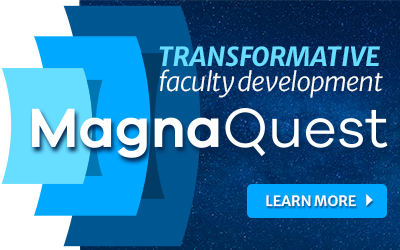In 2000 I wrote an article for the Journal of College Admissions called “Admissions: The Job You Keep.” It was a tribute to the difference my admissions counselor made when I was choosing a college in the early 1990s and a reflection on everything I appreciated about the admissions profession after three years in the field. In the article, I told the story of how I helped advocate for an applicant in a way that took me full circle back to my own college search experience.
I have been thinking of that article as I have considered how challenging the last few years have been in the world of enrollment. We are operating in an environment of seismic shifts in demographics, resource contraction, and changing public perception of the value of college. Technological glitches affect our application processes. Alternative delivery methods alter the definition of a college experience. Retention and completion metrics overshadow the admissions measurements we’ve been using for decades. Campuses are experiencing a frequently painful evolutionary process, and often campus leadership looks to enrollment to make it “all come out right in the end.”
In this shifting landscape, I can’t help but ask myself, “Is this still the profession I fell in love with almost two decades ago? Is it still the job you keep?”
As I have stepped back to look beyond the daily duties, my answer is “Yes.” And the reason for that answer is that admissions is still a field in which you can have a tangible impact on other people’s lives. Our profession retains that benefit, in a world where it is often lost.
So here are five ways that you, as an enrollment professional, make a difference:
1) You affect the lives of individual students.
A former boss of mine used to say, “Admissions: we are the dream makers.” I still believe that is true for a lot of students. Yes, we break our share of hearts as well when we send out denial letters, but we also help first-generation students imagine themselves as successful professionals, we connect undecided students with new opportunities, and we reassure petrified parents that it is going to be okay.
A while ago, as I was walking through the admissions office, one of our student tour guides stopped me. She said, “You probably don’t remember me, but you made all the difference in my attending here. You probably remember my mom as the really angry mom. But you took extra time and helped us understand the curriculum. I love it here and I’m doing really well. Now when I give tours, I tell everyone that I came here because one person took the time to help me.”
2) You affect the life of your institution.
Sometimes your institution may have a funny way of showing it, but it needs you. All those wonderful things that happen at your institution, from teaching to research to cultural events to graduating successful alumni, are possible because you are doing your job. Just like a person, a college or university needs nourishment, and your work is the lifeblood that keeps it healthy. So every accomplishment your institution achieves, whether a graduation, a new building, or a huge grant, is also your accomplishment.
Whether your colleagues across the institution are aware of it, you enable them to do great things. Your work helps your institution survive and thrive.
3) You affect the future of the profession.
I don’t know any field that is better at providing professional development to young people than admissions. From day one on the job, new admissions staff members are given more responsibility and influence than their titles or salaries suggest.
Freshly minted graduates, often with no real work experience, are asked to present, interview, market, write well, communicate persuasively, and sell a product that costs between $50,000 and $250,000 over four years. Their efforts determine the financial success of their institutions and the future paths of millions of enrolling students, and yet they are often treated as temporary, interchangeable, and unimportant by members of their own campus communities.
If you manage these young professionals, you have an incredible opportunity to shape their lives for the better, and to influence all the organizations, including many other colleges, for which they will eventually work. These new admissions staff members are eager for your wisdom, training, and mentoring. They are the future of the profession, and they are looking to you to learn what being a professional means.
4) You affect your community.
Occasionally when my wife and I are driving around town, she will jokingly say something like, “I hope the businesses around here appreciate what the admissions office does for them.” We live in a town where the university’s student population augments the city’s by about 25 percent. The businesses in town generate a lot of their revenue from student customers, not to mention the university’s 500 employees.
The work that we do directly impacts not only the economic well-being of our communities, but also their character, because the students we select will also become some of the communities’ workers, interns, volunteers, and in some cases, future residents. If we choose unwisely in selecting students, that can also have a negative effect on our communities. At the same time, the admissions staff members are often called on to be a resource that can make local schools better and help prepare local students for college.
5) You affect the future of the country.
I don’t want to be overly dramatic in making this point, but admissions officers stand at the gateway to future mobility. We also have the opportunity to create changes in opinion.
For example, I work for a state institution. Many of our students have never been out of the country. Some have never been out of the state. Through the recruitment and admissions choices we make, we can bring the world to our students and challenge their perceptions and broaden their horizons by ensuring that our institutions enroll a mix of students from different locations and cultures.
If we work together, we can provide data that shows where student preparation for college is failing. We can partner with nearby secondary schools to help them make improvements in college readiness.
We can reward students who work hard and overcome obstacles, and we can choose students who we know can be successful at our institutions and wisely counsel those who might not.
College admissions is not a field for the faint of heart. It takes energy, strategy, and a little bit of ice water in your veins. But if you want to make an impact, whether you are in the field three years or 30, it can be a job you choose to love, and to keep.
Aaron Basko is assistant vice president of enrollment management at Salisbury University.
Reprinted from “5 Reasons to Keep Loving Your Job in Admissions” in Recruitment & Retention 28.5(2014)7,8 © Magna Publications. All rights reserved.



